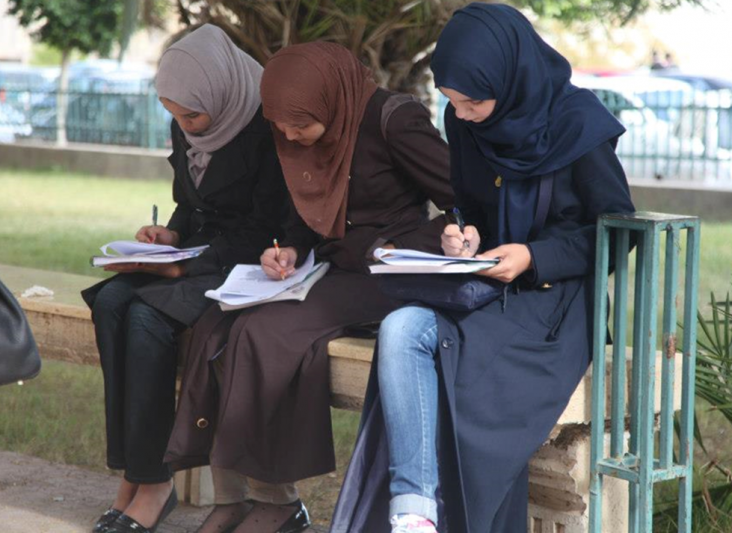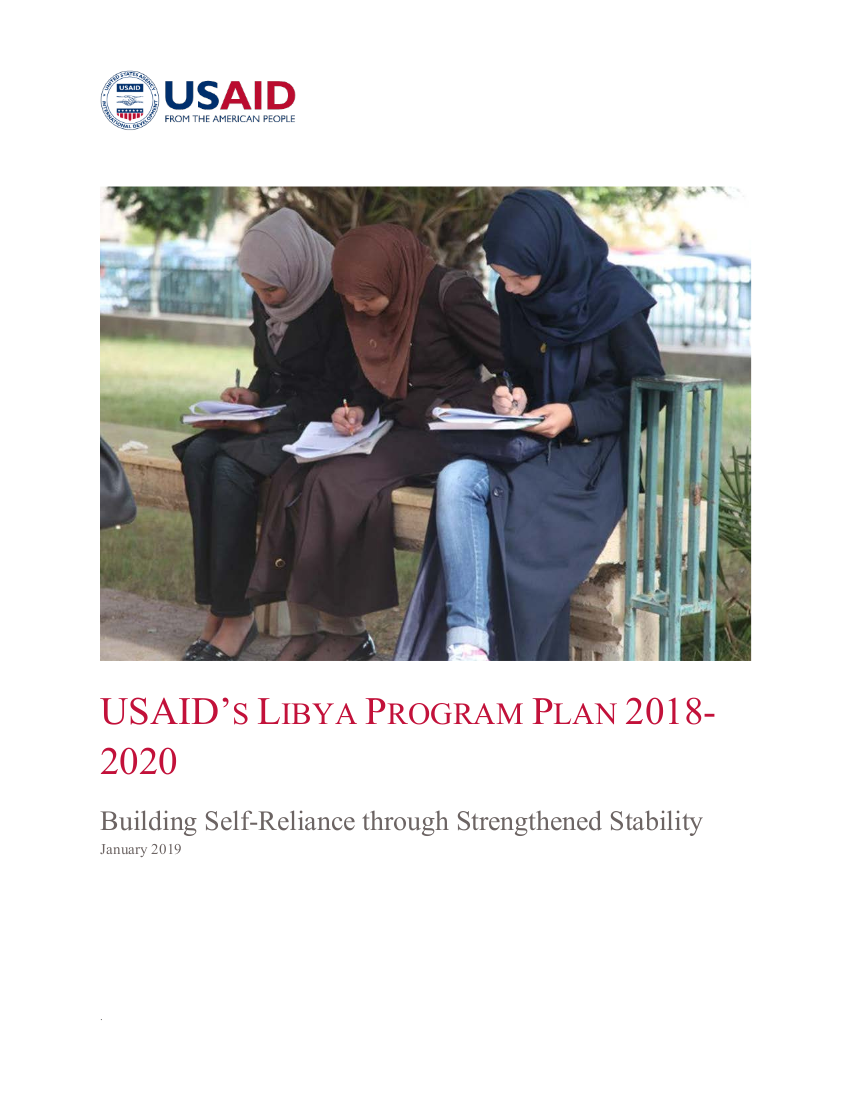Speeches Shim

PURPOSE: LIBYAN INSTITUTIONS AND COMMUNITIES ADVANCE NATIONAL STABILITY & SELF-RELIANCE
Libya has a substantial natural resource base, abundant human capital, and access to potentially lucrative trade routes, but lack of national cohesion and purpose impedes its movement along the path to self-reliance. The ongoing military stalemate risks plunging Libya into a prolonged civil conflict. Without greater stability in the security environment, economy, and civic life, Libyans will fail to reap the benefits of a transition to democracy and face further obstacles to trade and investment.
USAID/Libya’s program approach focuses on advancing stability and self-reliance by partnering with governmental institutions, civil society, the private sector and other actors essential to Libya’s near-term stability and long-term development. Development assistance is not sufficient to produce self-reliance, but does provide critical support along the journey by strengthening representative political processes, improving the business enabling environment, broadening employment opportunities, and enhancing the government’s capacity to deliver essential services. USAID will help advance Libyan cohesion by pursuing the following objectives:
USAID's Libya Program Plan 2018-2020 ![]() (pdf - 117k)
(pdf - 117k)
- Improve the accountability of governance institutions and their alignment with citizen interests. USAID will advance Libya’s democratic transition and self-reliance by: working with targeted ministries to improve the quality of essential services; supporting civil society groups to give citizens, including women, youth and ethnic minorities, a stronger voice in their government; bolstering public financial systems to reliably and transparently transfer funds from central to local government; and implementing better budget planning and execution. USAID will also partner with electoral management bodies, national and local authorities, the legislature, and civil society organizations to support credible and inclusive processes related elections, the adoption of a constitution, and accountable governance that responds to citizen priorities.
- Increase opportunities for licit economic growth and participation. USAID will help Libya mobilize natural resources and human capital to further its economic development and diversify its economy. Programming will improve the predictability of economic opportunities by improving the legal and regulatory framework for doing business in Libya, supporting state institutions to strengthen transparency and equitable resource distribution, and helping the private sector leverage petroleum-based revenues.
- Enhance the ability of communities to address drivers of instability and conflict. Through targeted, timely, and locally-driven programming, USAID will help communities recover from the immediate impact of conflict and reduce the potential for divisive grievances. With many communities affected by violent conflict, USAID will invest in community-prioritized activities such as light infrastructure rehabilitation to promote reconciliation and recovery of community cohesion, government services, and local economic activity.
These objectives, and the links between them, are summarized in the USAID/Libya results framework in Figure 1 below.
USAID/Libya Overarching Goal: Strengthened foundations of a more unified Libyan state Purpose: Libyan institutions and communities advance national stability and self-reliance. "'Stability' means minimum levels of predictability in economy, governance 'Advance self-reliance' because Libya has an educated populace and oil revenues. Assistance unlocks potential Objective 1: Institutions of governance more accountable to and better represent the interests of citizens Objective 2: Increased opportunity for licit economic growth and participation Objective 3: Libyan communities have enhanced ability to address drivers of instability and conflict
MANAGEMENT APPROACH
Libya is a fragile state, with an uncertain future and a security environment that requires innovative approaches to development programming. Managed from outside Libya, USAID’s Libya Program Plan employs a flexible, scenario-based approach to programming. The Agency verifies impact through in-country, third-party monitoring. For each scenario, USAID has incorporated adaptive tools to advance the goal, purpose, and objectives above based on changes in the political, security, economic, and service delivery environment. In order to monitor these changes, USAID and its partners inside and outside the U.S. government track indicators, such as those listed in Table 1.
Table 1: USAID/Libya Illustrative Context Indicators
| Political | Are political negotiations underway? Are armed actors using force to steer the political process? |
|---|---|
| What is the public perception of the political process and actors over the past three months? | |
| Number of local elections held in past three months and number planned for coming three months | |
| Security | Number of municipalities where a legitimate actor is providing public security |
| Number of partners reporting restricted freedom of movement of civil society actors | |
| Accessibility of key ports, airports, and border crossings | |
| Number and type of violent events in past three months | |
| Number of Internally Displaced Persons (IDP) and returnees | |
| Number of Libyan and non-Libyan migrants | |
| Economic | Libyan Dinar - US Dollar Exchange Rate, both official and “black market” |
| Median price of key food- and non-food items | |
| Oil production and price | |
| Macro-economic fiscal imbalances (e.g., fiscal deficit) | |
| Price of gasoline in commercial outlets (i.e., gas stations) in Libya | |
| Service Delivery | Average hours of electricity service per week over last three months |
| Primary School enrollment and attendance rates | |
| Solid waste collection indicators | |
| Quantity and quality of drinking water | |
| Availability of primary healthcare services |


Comment
Make a general inquiry or suggest an improvement.